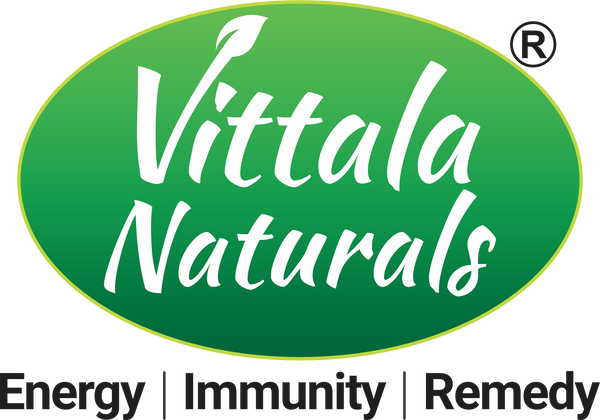Over 95% of the global population suffers from some disease or disorder. In 400 BC Hippocrates said: ‘Let food be thy medicine’, reportedly the father of Medicine.
There are over 70,000 diseases and we have only possibly much less than 50% of these have cures. What about the rest? Either it is the act of God (genetic disorders) or the vengeance following our misdeeds (due to food, environment, habits, etc.). It is true that healthy and safe lifestyles will reduce disease burden.
- Approximate 55% of diseases and disorders are on account of unhealthy lifestyles.
- Approximate 18% of health issues are on account of injuries.
- Remaining can be attributed to communicable and genetic diseases.

Around 10% of the global population is constituted by elderly adults, but near 30% of the overall total deaths are attributed to the aging population. Hence, unhealthy lifestyles must be taking its toll eventually. Unhealthy lifestyles is the culmination of habits entailing –
- Unhealthy eating: More than 40% of adults consume less than recommended intake of nutrients.
- Insufficient physical activity: Over 23% of those over 18 years lead a relatively sedentary life.
- Substance abuse: ‘Drugs’ usage (3.6-7.2% incidence), tobacco indulgence (including smoking) (14% incidence), excessive alcohol consumption (1.2-22% incidence) or its permutation and combined addiction.

Either –
- Adopt healthier lifestyle
- Stay in cleaner surroundings
- Eat the right food
- Or, else …
- Subject to competent medical caregiving
What makes one grow in years chronologically is the Almighty but what makes one seemingly look old with years passing by is the rampage caused by oxidative stress. Free radicals in excess are responsible for oxidative stress and they cause 80% of aging diseases and disorders. Of course proper diets can prevent oxidative stress but for this we need to consume DAILY:
- 3 or more servings of vegetables each day; AND
- 2 or more servings of fresh fruits each day.

One serving is defined as: one medium-sized fruit (such as apples, oranges, bananas, pears) 1/2 cup (125 mL) of raw (e.g. 20 grapes, 6 strawberries), cooked, canned or frozen fruits or vegetables; or 1 cup (250 mL) of raw leafy vegetables or salads; or 125 mL of 100% juice; or 1 piece medium sized fruit – banana, plum apple, peach.
Why such a recommendation? This is because fruits and vegetables are rich in antioxidants that can overpower the excessive free radicals. Remember free radicals are generated in ALL of us, irrespective of our so-called careful living. They are simply released by our cells simply because the mitochondria convert food calories to chemical energy to drive the muscles, and working or all parts of our body. God has given us a natural store of antioxidants to overcome these forms because of food utilization – but excessive sunlight, stress, pollution, overexertion, medicines, faulty cooking oils, etc. make the load of free radicals excessive. NATURE DOES NOT CARE ABOUT US ONCE WE HAVE REPRODUCED! We have to provide ourselves for the extra antioxidant support required.
But sadly enough 9% of the population consume adequate amounts of fruits AND vegetables (BOTH) on a daily basis! Hence, we are all deficient in antioxidants and hence, we start looking old as we continue celebrating more and more birthdays. So, which are the antioxidants we basically require that can abort the oxidative stress? A typical diet provides more than 25,000 bioactive food constituents of which most act as antioxidants. However, when the functions of antioxidants are put into perspective and synced with what nature has emphasized, these need to be vitamins and minerals (total: 7) to suffice basic requirements.
Vitamins (Carotenoids,Vitamin E, Vitamin C)
Minerals (Selenium, Zinc, Manganese, Copper)
The adequate amounts of the 3 vitamins and 4 minerals taken daily can guard all the organs and fluid media of the body (blood, etc.). We can get each of these nutrients as an article of food since nature has provided but what one must have an eye on is the amounts.
| NUTRIENT (per day data) | ANTIOXIDANT REQUIREMENT | DIETARY INTAKE | BALANCE EXTRA NECESSARY | QUANTITY TO BE CONSUMED / HIGHEST PROVIDING 2 FOOD ITEMS | |
| Beta-carotene (mg) | 20-30 | 1.8 | 18-28 | 3 carrots | ¾ sweet potato (large) |
| Vitamin E (IU) | 400 | 12 | 388 | 1,513 almonds | 145 avocados |
| Vitamin C (mg) | 500 | 143 | 357 | ¾ amla | 3 guavas |
| Selenium (mcg) | 200 | 134 | 66 | ½ cup tuna fish chunks | 3 cups cheese or 3 hard-boiled eggs |
| Zinc (mg) | 25 | 11.6 | 13.4 | 16 chicken drumsticks | 27 cups of cooked black dal |
| Manganese (mg) | 2.5 | 1.1 | 1.4 | ½ cup of firm tofu chunks | 2.5 cups of cooked brown rice |
| Copper (mg) | 2.4 | 0.8-1 | 1.4-1.6 | ¾ medium oyster | 40 dry, roasted cashews |
Is it humanly possible and practical to consume day in and day out throughout life each of the abovementioned foods, AND IN THE QUANTITIES SPECIFIED, to ensure protection against free radicals? Of course, never ever.

The answer thus lies in a combination supplement appropriately designed to provide the required quantities of antioxidant vitamins and antioxidant minerals that are required by the body to ward off the aging-related changes. The glaring ones include –
- Loss of beauty / handsomeness
- Weakness and easy tiredness
- Lessening of eyesight and hearing
- Brittle bones and painful joints
- Heart disease and diabetes risk
- Propensity for infections and cancer
- Diminished vigour and vitality, etc.
This is just an example of why supplements are here to stay. When recommended the reflex response is which natural foods can provide. The Dieticians then add to the confusion by their varied recommendations by showing off their knowledge by rattling food items recommendable for every nutrient – without paying any heed to their value sans required quantities versus content. The consumer mindset is at peace in accepting this list with glee stating that he prefers eating these foods than consuming additional (pocket-draining) supplements – not bothering about the long-term benefits as long as his short-term perceptions are not challenged in this arena of positive health.
If there is a desire, and only if there is a will as well, should one indulge in long-term intake of supplements. Loyalty always pays and, in the case of supplements as well, faith in them will repay rich dividends as the years of life ripen. Supplements are the new game-changer in livelier living for inculcating Positive Health, and for benefitting many maladies wherein there are no cures in modern medicine.
As my good friend Bharat Modi once said, repurposing the words of Hippocrates – ‘Let food be thy medicine - but since it is not so now-a-days, let medicine (supplements) be thy food’.
DR. R K SANGHAVI
Prophesied Enabler
Experience & Expertise: Clinician & Healthcare Industry Adviser



